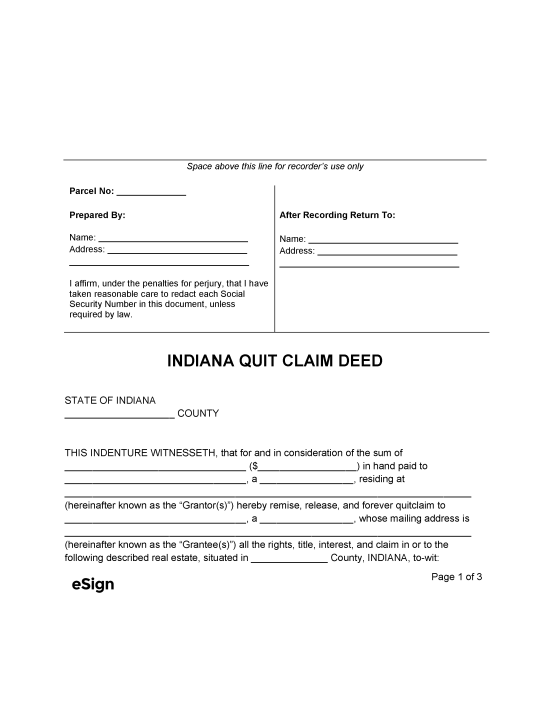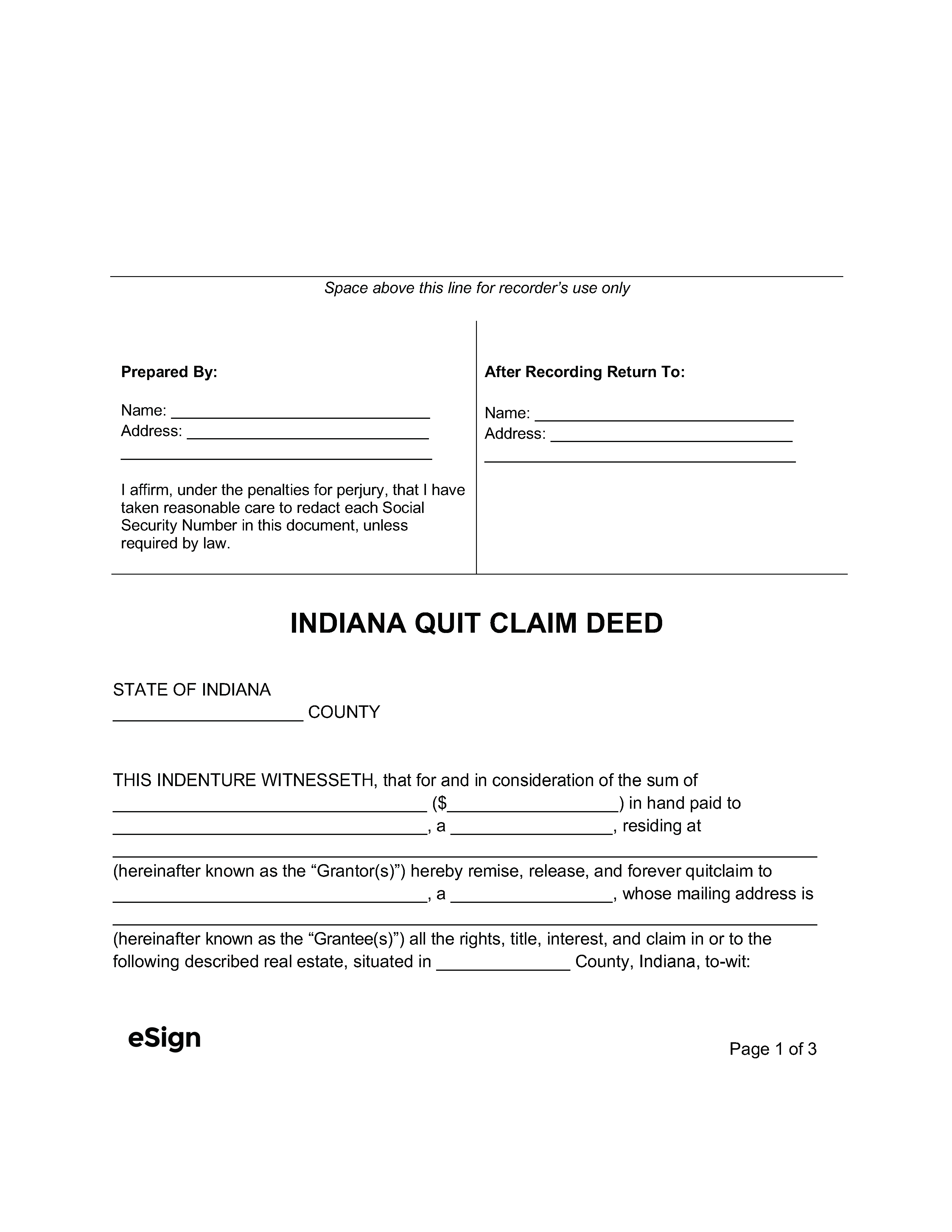Recording Details
- Signing Requirements – The grantor’s signature must be acknowledged or proved.[1]
- Where to Record – County Recorder’s Office[2]
- Recording fees – $25 (at the time of this writing)[3]
Formatting Requirements
To be accepted by the recorder’s office, a deed document needs to comply with these requirements[4]:
- Margins: First and last pages must have a minimum of 2″ on top and bottom and 0.5″ on each side; all other pages must have 0.5″ margins on every side
- Font: Minimum 10pt font
- Paper: Minimum 20lb weight white paper with maximum size of 8.5” x 14”
- Ink: Black

